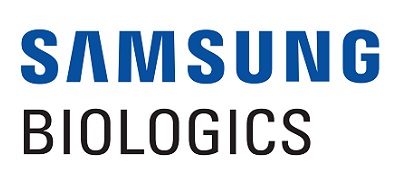In response to the continuous transformation in complex modalities, an integrated drug-development platform has been newly brought up to drug developers wanting to create an optimal set-up for successful manufacturing of their hard-developed drugs.
At the forefront of this transformation are antibody-based therapeutics, such as bispecific antibodies (BsAbs). The introduction of novel, intricate antibody-based therapeutics into the drug pipeline presents opportunities to effectively treat more patients. However, the advancement of novel biologics also introduced development and manufacturing difficulties that emphasize the need for flexible solutions with the ability to overcome complexity.
In this article, Jiseon Oh, Lead Scientist in Formulation Development at Samsung Biologics, discusses the role of contract development organization (CDO) partnerships in successfully progressing complex biologics from clinic to commercialization. She underscores the importance of integrating innovative technologies early in the process and using proprietary development platforms to overcome challenges without compromising quality or delaying timelines.
Evolving Horizons in the Biologics Space
Antibody-based modalities have emerged to tackle unmet needs in healthcare, harnessing the power of precise molecular targeting and innovative therapeutic strategies. The emergence of these therapeutics is evident from the rapid growth of the antibody-based therapy market, which was worth over $186 billion in 2021 and is expected to increase at a compound annual growth rate of 13.2% from 2022 to 2028 thanks to the approval of new therapies [1].
The ability of antibodies to bind specifically to particular cell types or proteins and stimulate an immune response has allowed therapeutics to be developed for a wide variety of conditions. These medicines also have versatility in the diseases they can treat, ranging from cancer indications to autoimmune diseases and neurodegenerative disorders [2].
Leveraging the unlimited biological potential of antibodies, advanced medicines have been designed to bring in results built on the effectiveness of antibody-based modalities. And one of the emerging modalities is bispecific antibodies (BsAbs), designed to simultaneously bind two antigens or epitopes. BsAbs allows for enhanced target specificity, the engagement of multiple pathways and the creation of synergistic effects. BsAbs are gaining ground in oncology, immunology and infectious disease research, offering promising avenues for addressing conditions that have eluded conventional approaches.
Complex molecules-based modalities can offer unprecedented therapeutic benefits. However, their development and manufacturing consist of delicate processes.
Challenges in Meeting the Need for Increasingly Complex Biologics
The biotherapeutics landscape has been reshaped by advanced antibody-based therapeutics, with BsAbs being especially effective in treating diseases. Since the first BsAbs product received approval in 2009, more than 220 of these innovative therapies are either approved or undergoing clinical evaluation [3].
While complex biologics offer new avenues for treating diseases like non-small lung cell cancer, multiple myeloma, acute lymphoblastic leukemia and cervical cancer [4], their development and manufacturing pose inherent challenges. Creating these therapeutic modalities is more intricate than creating traditional antibodies. BsAbs manufacturing, in particular, presents several critical issues:
- Expression System: BsAbs often require more complex expression systems than a traditional antibody due to their dual-targeting nature. Developing a stable cell line capable of consistently producing BsAbs at a sufficient yield can be a significant challenge.
- Production Yield: High production yield is crucial for BsAbs to meet clinical demand. Ensuring a stable and robust manufacturing process that consistently yields an adequate quantity of BsAbs is vital for both clinical trials and eventual commercial production.
- Intact IgG-like vs. Non-IgG-like Form: It’s essential to ensure the correct assembly of BsAbs, which may involve distinct structural components. Ensuring proper folding and assembly is critical for the BsAbs to exhibit the desired binding affinity and therapeutic function.
- Impurities: During the production of BsAbs, unwanted species, such as aggregates, fragments or mispaired antibodies, can be formed. These impurities can affect the safety and efficacy of the final product.
- Patient Safety: Performing a comprehensive immunogenicity risk assessment to ensure BsAb efficacy and safety of the therapeutic. Reducing immunogenicity may include developing BsAbs with reduced immunogenic potential or incorporating immunosuppressive agents into the treatment regimen.
- Storage and Shelf Life: The stability of BsAbs over time is critical to ensuring that the drug retains its efficacy and safety throughout its shelf life. Factors like temperature sensitivity, aggregation and chemical degradation can impact stability. Formulation development and stability testing are essential to extend the drug’s shelf life and ensure it remains effective when administered to patients.
Compared with the well-established processes involved in antibody production, the development and manufacturing of complex biologics lack standardization, potentially leading to risks and delays in the development process.
Overcoming the Challenges of Complex Biologic Development
The high-quality development of complex biologics is challenging, demanding innovative solutions and often requiring strategic partnerships to establish an optimized foundation for successful drug manufacturing. Yet the development of these novel entities presents intricate challenges that necessitate innovative solutions and often require partnership with suitable collaborators.
There are several key features that a competitive CDO must possess to ensure a robust foundation for complex biologic development and manufacturing:
- Holistic Decision-Making
Complex biologics come with unique characteristics that can lead to development and manufacturing challenges, potentially causing delays. An integrated development strategy ensures a comprehensive understanding of how decisions made in the early stages will impact all subsequent phases. This necessitates seamless collaboration across teams, fostering the exchange of information and an awareness of how process modifications can influence the critical quality attributes (CQAs) of the therapeutic throughout production. By understanding potential risks early, CDOs can act proactively to implement solutions and minimize delays preventing innovative therapeutics from reaching patients sooner.
- Expertise and Risk Assessment
Technical proficiency is paramount to success in complex biologic development. Navigating the unique characteristics of antibody therapeutics demands experience and a detailed understanding of the unique molecular complexities.
The profound knowledge needed to construct a successful development strategy and mitigate critical manufacturing risks is derived not only from prior experience and extensive expertise but also from proactive dialog with clients. In cases requiring process reengineering, client insights, including their goals, are instrumental in finding appropriate solutions.
- Integrated CMC Platforms for Addressing Challenges
Navigating the intricacies of complex biologics development demands innovative solutions. CDOs can aid the development process with proprietary chemistry, manufacturing and control (CMC) services and platforms. By coupling the strategic expertise of CDOs and CMC platforms, biologic developers can overcome the challenges of complex biologic development and ultimately achieve commercial success. CMC platforms can be designed to address development complexity in various ways:
- Developability at early development stage
Streamlining early-stage drug development sets up the optimized environment for reliable biomanufacturing. Consequently, CDOs are designing developability assessment platforms that systematically screen molecules at an early development stage to identify candidates with the best potential for advancement to Investigational New Drug (IND) and Biological License Application (BLA).
By leveraging advanced CLD technologies such as high-throughput screening and data analytics, assessment platforms enable CDOs to conduct a robust risk assessment and quickly guide drug candidates to the path of biotherapeutic development success.
- Manufacturability of biologics with unique structures and properties
Advancing molecules like BsAbs that possess distinctive characteristics require multi-faceted, data-driven analyses. Selecting the most promising therapeutic candidates within a comprehensive development platform can streamline the complex biologic development process.
Generating high-yield cell lines using compact but advanced technologies allows for the identification of issues that could appear in subsequent development stages, including but not limited to low efficiency or safety, and cause delays.
CDOs are employing high-yield BsAb platforms to elevate the design and development of therapeutics by ensuring an asymmetrical structure, low immunogenicity risk and correct pairing of dimer and domain. These platforms can ensure high binding affinity among chains to produce high titer and purity for optimized manufacturability. By relying on a CDO with a high-yield bispecific antibody platform with a high chain-pairing success rate, drug developers can reduce risks associated with CMC.
By adopting these integrated CMC platforms, CDOs can inject innovation and efficiency into every development phase to minimize potential delays to IND and BLA milestones. With holistic decision-making, risk assessment and integrated CMC solutions, CDOs can establish an optimized foundation to ensure success in end-to-end drug manufacturing.
Mastering the Development of Complex Biologics
As the influx of complex biologics, such as BsAbs, surges into the development pipeline, the ability to effectively mitigate the inherent risks associated with their development becomes paramount for the success of drug development. Ensuring the successful delivery of these innovative therapeutics to patients necessitates the implementation of an integrated development strategy fortified by extensive expertise.
In response to this challenge, CDOs must continue to adapt their capabilities to support these pioneering products, introducing innovative platforms engineered to ensure a safe, efficacious therapy with high developability. By forging alliances with competitive CDOs equipped with contract development and manufacturing organization (CDMO) capabilities, an end-to-end development strategy can be deployed. Leveraging tailored CMC solutions, CDOs can set up an optimized foundation for ensuring drug manufacturing success as the project progresses.
References
- https://www.gminsights.com/industry-analysis/antibody-therapy-market https://jbiomedsci.biomedcentral.com/articles/10.1186/s12929-022-00852-9
- https://www.businesswire.com/news/home/20230705487168/en/Global-Bispecific-Antibodies-Market-Report-2023-Rising-Interest-in-Bispecific-Antibody-Therapeutics-Drives-Growth—ResearchAndMarkets.com
- https://academic.oup.com/abt/article/5/4/233/6693145






















